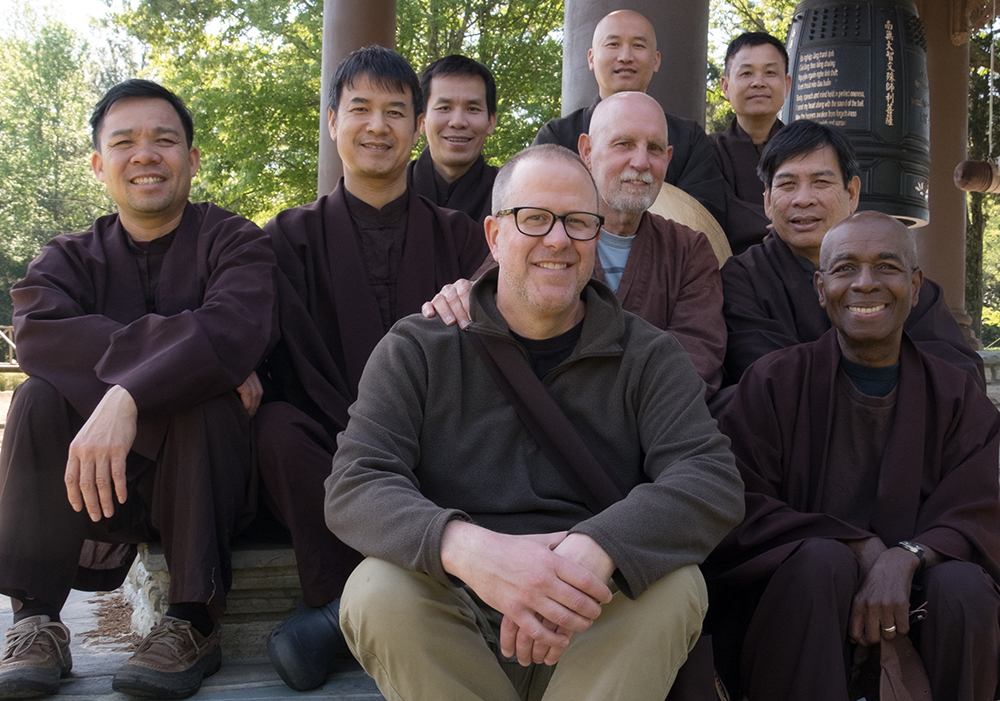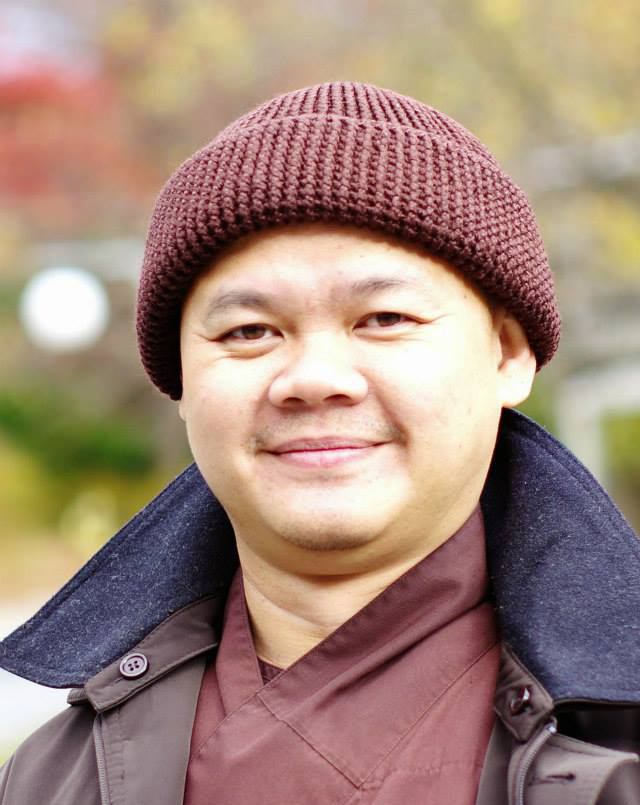Serving as Order of Interbeing Members
By Brother Phap Lac

Respected Thay, dear brothers and sisters, dear community, I would like to share about the beginning of the Order of Interbeing and what it means to practice as an OI member.
First of all, we have to review some history.
Serving as Order of Interbeing Members
By Brother Phap Lac

Respected Thay, dear brothers and sisters, dear community, I would like to share about the beginning of the Order of Interbeing and what it means to practice as an OI member.
First of all, we have to review some history. Thich Nhat Hanh opened the School of Youth for Social Service in Vietnam in September 1965. A year later, on February 5, 1966, Thay conducted the first ceremony to ordain six OI members in Vietnam. And two months later, on May 2, 1966, Thay left Vietnam to call for a peaceful stop to the war. The South Vietnamese government never allowed him to come back, and he experienced forty years of exile.
When Thay talks about the OI and OI members, he is very happy. He is happy because the OI path is very clear and complete. When we practice as OI members, we practice taking care of ourselves before we go out and help people. Unlike members of some non-governmental organizations, who relive other people’s suffering, we have our practice that makes us different. We learn how to walk, we learn how to sit, we learn how to breathe, how to eat, to take care of ourselves, to find happiness and peace before we go out and help others. As long as you stay on that path, you are secure. You have the Fourteen Mindfulness Trainings, fourteen benefits to help you, fourteen layers to protect you when you go out and help people.
Our first generation of six brothers and sisters, students of the SYSS, went out to help people. Sometimes they had to go to the battlefield to save innocent people from the war. Sometimes they faced very, very dangerous situations and they dealt with bullets, guns, bombs, grenades. They never gave up. They sacrificed themselves to help people. And not all of them came back home. Some of them came back home in a wheelchair; some of them came back in a body bag. But they still went out, still went straight forward to help people. Members of the OI worked for the people of Vietnam. They did not work for the northern or southern government; they only worked for the people.
Why did they do that? How could they do that? How did they have the power? Of course, they loved their country. But what is important is that when they went out and helped people, they did not help with material goods. They helped people learn how to practice. They gave people money, but they also gave people the practice. They connected with each other, they felt like a family, and they felt that they were helping their families. That’s why they shared blood, tears, suffering, and happiness with them, and they sacrificed themselves to help people.
It’s a great honor to talk about them and to think about them.
When I joined the OI, I got training in how to breathe, how to walk, how to eat. I learned the Fourteen Mindfulness Trainings. We learn the Fourteen Mindfulness Trainings until we benefit from them, and we practice until we feel that the practice is our breath, our blood. We learn how to build Sangha, how to build the practice community so we can protect ourselves and protect each other when we do social service. I am very happy and grateful when I say that I am an OI member.
This article was adapted from a Dharma talk given at the Order of Interbeing Retreat at Blue Cliff Monastery on April 21, 2016. The talk was transcribed by Giovanna Zerbi and Diane Wyzga, and edited by Sister Annabel (True Virtue) and Natascha Bruckner.

Brother Phap Lac, Happiness of Dharma, was born in Vietnam. He was ordained by Thich Nhat Hanh in Key West, Florida, in 1997 during the US tour. He is currently living in Blue Cliff Monastery.

